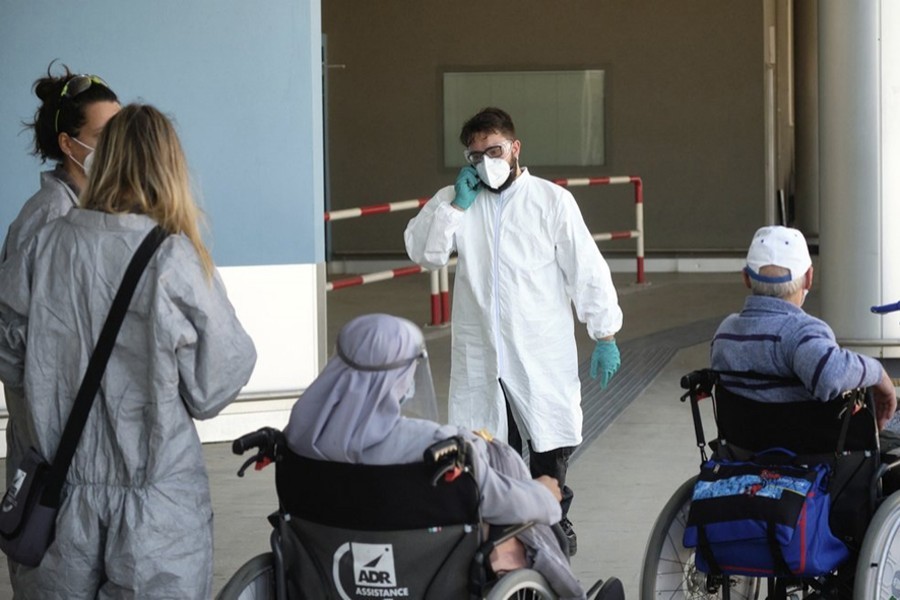
Published :
Updated :

The report that the government has lost contact of the 240 people who recently returned from South Africa (SA) has been a cause for serious public health concern. If some of those returnees from SA were carrying the highly contagious, newly identified coronavirus variant, Omicron, the consequences may be terrible. Though, as reported, those SA-returnees had arrived in Bangladesh before the emergence of the new SARS-CoV-2 was first reported to WHO from SA, the fear is the actual Omicron-infection might have started before its detection.
In that case, those back home from SA need to be tested for the virus and put in quarantine. After the news of the Omicron's detection in SA got around, those SA-returnees have gone traceless reportedly switching their mobile phones off. This is unfortunate and irresponsible on the part of those Bangladeshis from SA. Understandably, they have resorted to such inappropriate behaviour to avoid the discomfort of health checks and being under quarantine. But are they not aware that by thus dodging the emergency health measures against the pandemic, they are being insensitive towards their own family members, let alone the rest of the population?
But still it is not too late. They should, by all means, come forward and cooperate with the government, if only to avoid the ignominy of being tracked down by others. The government, on its part, should use all necessary measures to get in touch with those errant individuals back from SA. However, it is also important that unnecessary alarm is not created over the issue. In fact, according to WHO, other than its high transmissibility, other aspects, such as, how deadly the Omicron variant is, has not yet been determined. The scientific information so far about this variant is that it is potentially highly transmissible, some 50 mutations have taken place in its gene and its spike protein changed its characteristics 30 times. But that it has gone through a lot of mutations does not necessarily make it more lethal.
Evidently, the global health watchdog, despite calling Omicron a Variant of Concern (VOC), has advised the international community not to go for imposing travel ban forthwith. But that should not be any reason for not to be on the safe side. In particular, the civil aviation authority should be able to provide the health and other departments of the government concerned with the home address and other related information about incoming passengers from countries declared by WHO to be 'at risk'. That would help contact such passengers in case any of them is found to have failed to go through the necessary heath checks. At this point, it may be recalled that during the first wave of the pandemic, many returnees from the pandemic-affected countries including, especially, Italy, could cross the airport check without even being asked to get themselves tested for COVID. But once the matter came to light, the next step of tracing their whereabouts and subjecting them to COVID tests or making them go through self-isolation was not duly taken. Unsurprisingly, the pandemic may have spread due to lack of timely diligence. Against this backdrop, the government, especially, the health ministry has seemingly stepped up its vigil. Alongside strict checks at the land, sea and airports and arrangement for quarantine, observance of basic health guidelines should be made mandatory for the entire population. Simultaneously, the ongoing vaccination drive should continue full steam.


 For all latest news, follow The Financial Express Google News channel.
For all latest news, follow The Financial Express Google News channel.